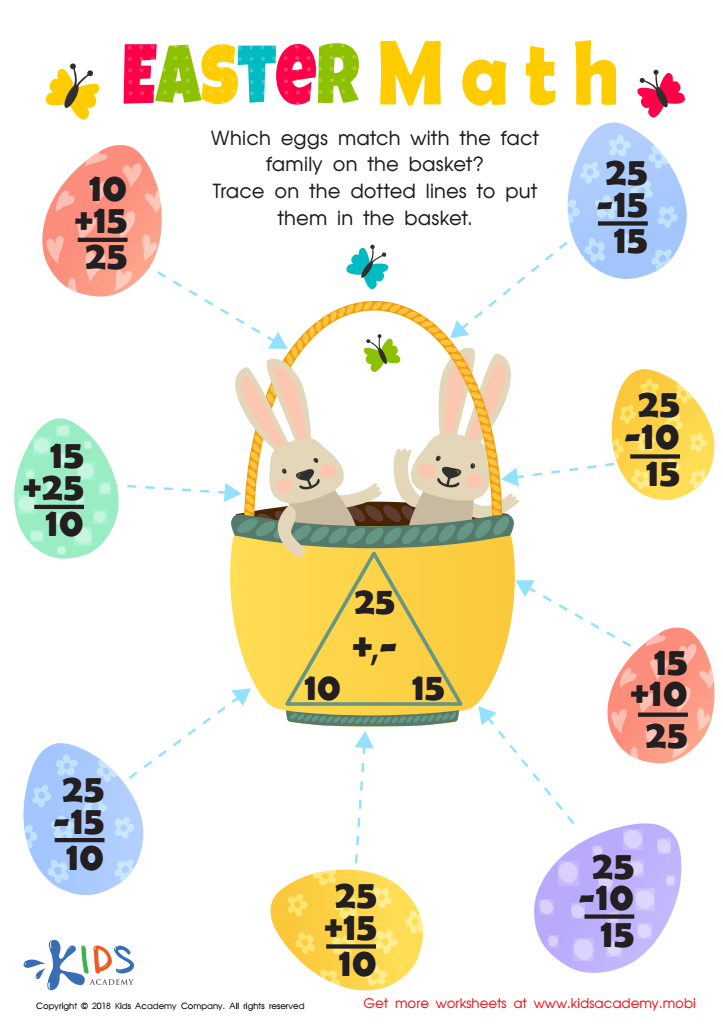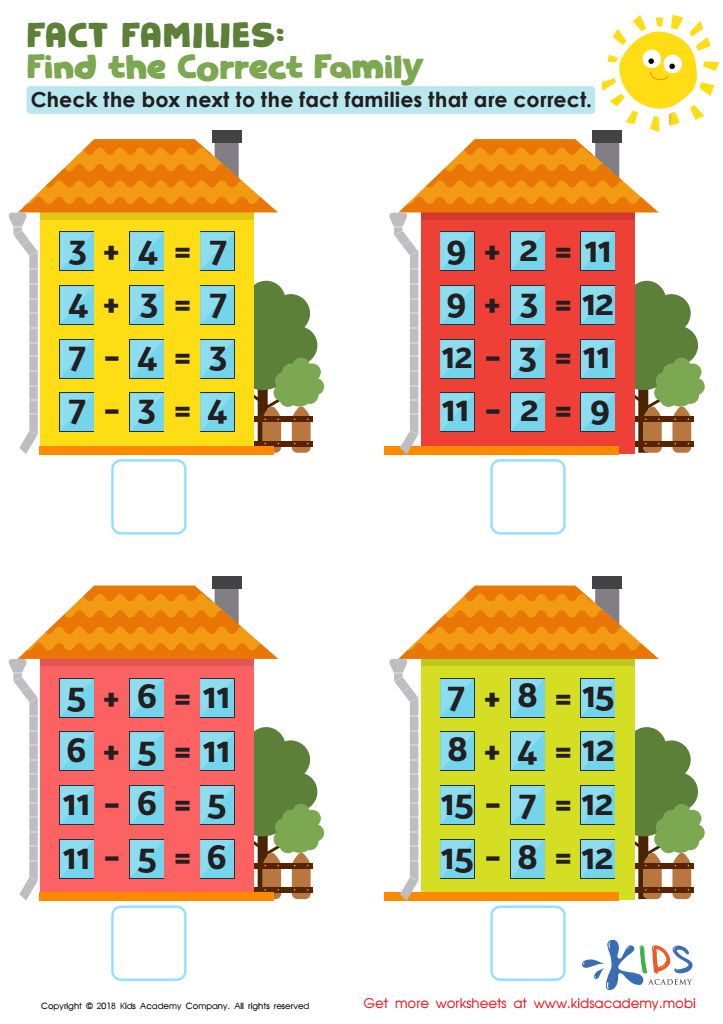Problem-Solving Skills Normal Addition Facts Worksheets for Ages 3-6
5 filtered results
-
From - To
Discover our engaging "Problem-Solving Skills Normal Addition Facts Worksheets" designed specifically for children ages 3-6! These worksheets aim to introduce young learners to essential addition concepts through fun and interactive activities. Each set focuses on developing problem-solving skills, helping students understand and apply basic addition facts in real-world scenarios. Ideal for both classroom use and at-home learning, these resources make math enjoyable and accessible. Our worksheets encourage critical thinking, creativity, and confidence as children navigate various math challenges. Equip your little ones with the foundational skills they need while fostering a love for numbers! Start exploring today!


Tricky Problems Worksheet: Part 1


7 Continents and 7 Seas Worksheet


Tricky Problems Worksheet: Part 2


Fact Families: Easter Math Worksheet


Fact Families: Find Correct Family Worksheet
Problem-solving skills and understanding normal addition facts are crucial for children aged 3-6 as they lay the foundation for future mathematical understanding and critical thinking. During these formative years, children develop essential cognitive abilities and begin to make sense of the world around them. By fostering problem-solving skills, parents and teachers encourage children to think critically, analyze situations, and explore multiple solutions, which are essential skills in both academics and everyday life.
Normal addition facts introduce basic numerical concepts, helping children comprehend quantities, develop number sense, and understand relationships between numbers. Mastering these facts promotes confidence in math, prepares children for more complex operations later, and ensures they can tackle real-world problems that involve addition.
Moreover, integrating playful and engaging activities can make learning enjoyable and effective during this stage. By focusing on these key areas, parents and teachers not only enhance children's mathematical knowledge but also support overall intellectual development. This investment in early learning pays off in higher academic achievement, increased self-esteem, and a lifelong love for learning. Recognizing the significance of these skills allows families and educators to create supportive environments that nurture curious, capable young learners ready to take on challenges.
 Assign to My Students
Assign to My Students















